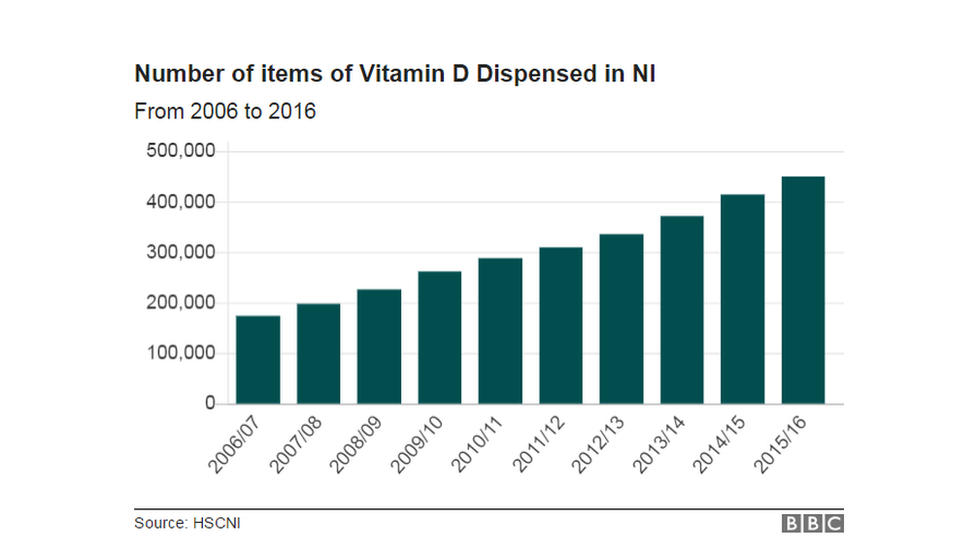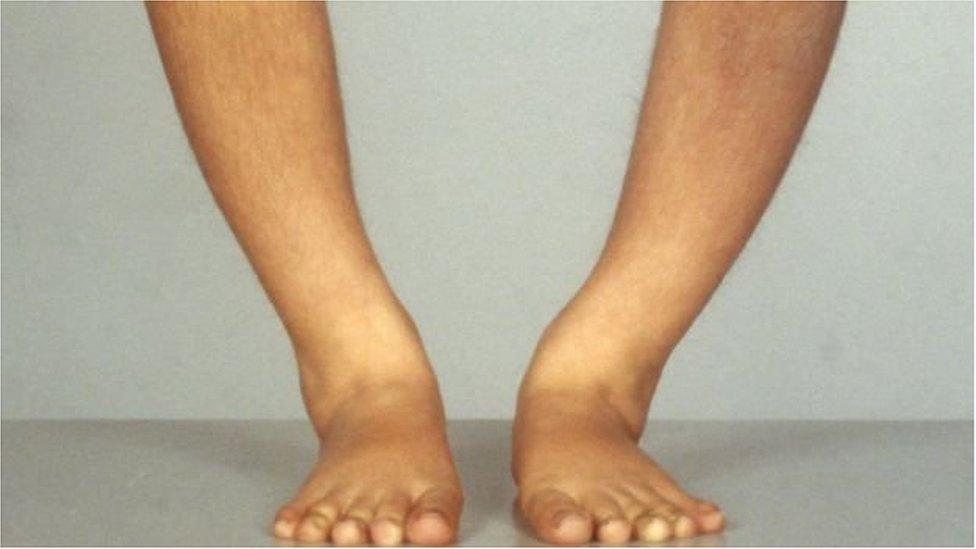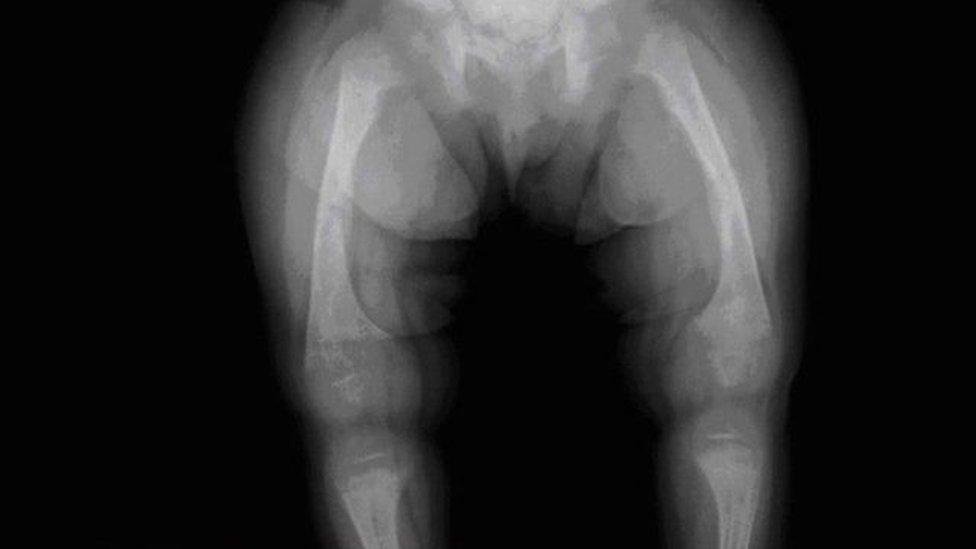Vitamin D prescriptions 'double in a decade'
- Published

UK public health advice is that everyone in the UK should consider taking Vitamin D supplements in autumn and winter
Rickets does not have the ring of a 21st Century problem - it sounds more like the horror of a bygone era.
The disease, caused by a lack of vitamin D or calcium , externalconjures images of peaky looking Dickensian urchins.
But figures obtained by the BBC show that in Northern Ireland prescriptions for Vitamin D have more than doubled in the last 10 years.
And public health advice for the UK recommends that everyone should take it in autumn and winter.
Low vitamin D levels can lead to brittle bones and rickets in children.
The figures from the HSCNI show a dramatic rise in Vitamin D prescriptions over the last 10 years: The data does not include Vitamin D bought over the counter.

Figures obtained by the BBC from the HSCNI show a year-on-year rise in the number of prescriptions for Vitamin D
But why have prescriptions rocketed so much in the last decade?
We are used to slathering ourselves in sunscreen seeing the burning ball of gas above us as public enemy number one.
This is with good reason - malignant melanoma rates have, external risen over the past 30 years from an average of 103 cases per year in the mid 1980s to 332 cases a year at present.

A lack of Vitamin D can lead to brittle bones and rickets
While it may be a given that we need to protect ourselves from harmful UVA and UVB rays, if we are not getting vitamin D from the sun, how can we up our intake?
New recommendations
An extensive review of the evidence, carried out by the Scientific Advisory Committee on Nutrition (SACN), external, suggests everyone over the age of one needs to consume 10 micrograms of vitamin D each day in order to protect bone and muscle health.
The Public Health Agency in Northern Ireland published an updated version of its leaflet on vitamin D in August, external.
It highlights the importance of vitamin D supplements for particular groups, including babies, children aged between 1 and 4 years, as well as people whose exposure to sunlight is limited, and those with darker skins.
It also outlines new recommendations that all adults and children aged five years and over should consider taking vitamin D supplements during the autumn and winter months.

The PHA NI recommends that all adults and children aged five and over should consider taking vitamin D supplements during the autumn and winter months.
Belfast dietician Gillian Killner says climate and diet are factors.
"It's a very important micronutrient, but also a hormone and we don't get enough of it where we live in the northern hemisphere so we do need to supplement," she said.
"In terms of where we get our Vitamin D - the way we eat means we don't eat a lot of fatty fish any more, nor eggs and butter and nutrient rich foods - so without the sunshine and nutrient rich foods we won't be able to achieve it orally.
"That's another reason a baseline Vitamin D supplement is very useful for not only children, elderly, pregnant women and breastfeeding mothers. Everyone should really consider a supplement if they're not getting lots of sunshine and nutrient rich foods," she said.
But she was also keen to point out that she thinks intake of the vitamin should be monitored.
"I have been an advocate for it for many years, but it is something you do need to monitor. It is an antagonist to vitamin A."
Ms Killner recommends taking it for six months of the year and having a break in the summer.

An X-ray of child with rickets
- Published21 July 2016

- Published21 July 2016

- Published4 February 2011